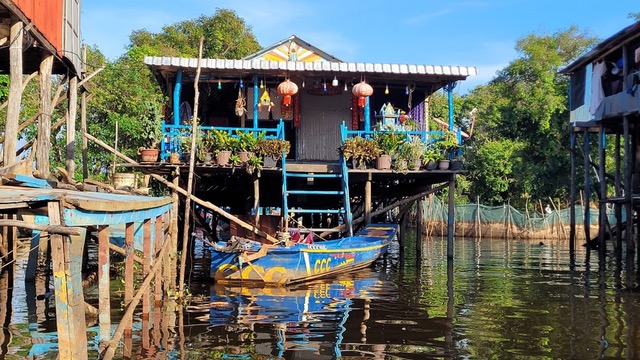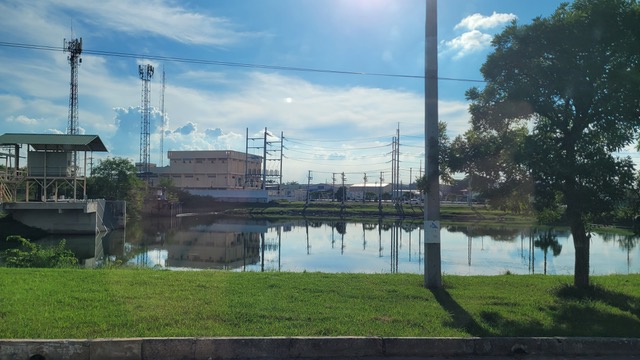
Feasibility Study
Co-creation of the Earth-human System Program
Disasters and Development in East Asian Regionalism in the Anthropocene
Abstract
Managing disasters, such as floods or industrial accidents, is central to achieving sustainable development in East Asia. Across the region, the character and risks of disasters have changed due to industrialization and its legacies, trade, investment, aid, and geopolitics. This research will rethink how we understand, prepare for and respond to disasters through examining the interconnections created by East Asian regionalism and people’s changing relationship with nature. We focus on cases in Cambodia, China, Japan, Myanmar, Taiwan, Thailand, and the regional economic, environmental and disaster governance systems that impact them.
Why do this research?
Our study examines the relationship between disasters and development in East Asian regionalism in the age of the Anthropocene. The impacts of disasters ranging from floods and droughts to earthquakes and tsunamis, incur significant economic, social and environmental harms, and put at risk systems of human provisioning, such as for food, energy supply, and transport. This is even more true in a rapidly changing and interconnected world where our everyday life is greatly dependent on things that have been made available through flows of trade, investment, and aid in global supply chains.
This research explores how deepening economic and environmental connectivities in East Asian regionalism relate to causing, preparing for and responding to disasters of various types. Previous studies and policies have largely treated economic, environmental, and disaster governance separately, failing to clarify the interconnected relationship between disasters and development. This reflects the siloed approach to governance, which is often also focused onto human interests without considering people’s changing relationship with the natural world that sustains societies and also needs to be nurtured.
We ask: “What policy/governance is required to ensure sustainable development and disaster management in the context of regional connectivity?” Conceptually, we draw on World Ecology, the social production of disasters, and environmental justice. By reconceptualizing the co-produced character of economic development, disasters and environment, we aim to rethink how governance systems can be holistically designed and put into practice in a post-Sendai Framework, post-2030 development agenda context.
The research will consider a range of types of disasters, including floods, droughts, earthquakes and industrial accidents. Local case studies will be undertaken in Cambodia, China, Japan, Myanmar, Taiwan, and Thailand. Regional case studies will also be undertaken, for example on transboundary haze, transboundary water governance, climate change and weather systems, and the role of the ASEAN Coordinating Centre for Humanitarian Assistance on Disaster Management (AHA Centre). In doing so, the research aims to be transdisciplinary and contribute to the process of policy design and institution building by collaborating with relevant actors at the local, national, and regional levels.
Results
What we want to do
During our feasibility study research period, we have three goals. First, we will consolidate our research design conceptually and methodologically, drawing on research in world ecology, the social construction of disasters, and reciprocity and values in attaining justice in humanity-in-nature relations. Second, we will organize a workshop at RIHN in July 2025 attended by researchers involved in the project to share details on proposed case studies and to explore their interconnections. Based on this event, we will prepare a co-authored publication. Third, we will consolidate the research projects coordination internally and with external collaborators ready to propose a full research design through a transdisciplinary approach. This includes identifying opportunities to engage in policy dialogues such as the post-2030 global development agenda, post-2030 Sendai Framework, and the ASEAN 2045 Vision, and to develop strategies for the research to have concrete benefits to communities impacted by disasters in each country where case studies are located.
News
-
{{ data.disp_date }}
{{ data.content }}
Member
FS Principal Investigator
ITO, Takeshi
Professor, Sophia University
Main Members
[Sub Leader]
MIDDLETON, Carl Chulalongkorn University
[Members]
BISRI, Mizan Kobe University
DANIA, Maya Mae Fah Luang University
GRUNDY-WARR, Carl National University of Singapore
HARTLEY, Ryan Chuo University
JOBIN, Paul Academia Sinica
NAW THIRI, May Aye University of Tokyo
JUWITASARI, Reni Mae Fah Luang University
MATSUDA Yoko Kyoto University
NAITO Daisuke Kyoto University
OTSUKA Kenji Institute of Developing Economies
SURIMAS, Thianchai Thammasat University
VADDHANAPHUTI, Chaya Chiang Mai University
WANG, Raymond Yu Southern University of Science and Technology
YONG, Ming Li Singapore University of Social Sciences
[Advisory Committee]
CRUZ, Ana Maria Kyoto University
NAGAMI Kozo Tohoku University
PORIO, Emma Ateneo De Manila University
SUGIHARA Kaoru Research Institute for Humanity and Nature
